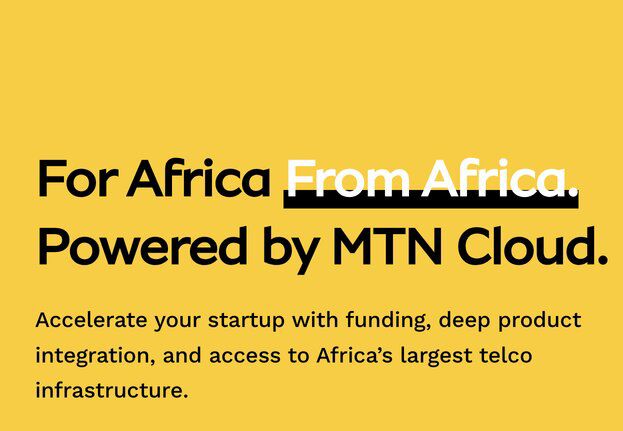Feature: How Digital Payment Is Changing Lives in Ghana
“I used to go to the bank almost every week, sometimes just to check my balance or transfer money to someone,” recalls Gloria Mensah, a Shop owner in her 30s in Ablekuma.
“It was stressful. Long queues, limited working hours, and sometimes even network issues at the bank itself. But once I started using MoMo everything changed.”
For Gloria, it started with convenience. “I realized I could do all those things from my phone, at any time even at night. So gradually, I stopped going to the bank altogether.” The convenience wasn’t just about saving time it was about transforming daily routines.
“With MoMo, I can send money, buy airtime, pay bills, or even pay for food all within minutes,” she explains. “At the bank, a simple transfer could take 30 minutes. Now, it takes less than 30 seconds. That difference is too significant to ignore.”
Gloria’s experience hasn’t been without hiccups. She’s had to deal with network failures and once sent money to the wrong number. “Thankfully, MTN helped me reverse it, but it took a few days,” she admits. “Fraud is also something I worry about. I always double-check numbers and never share my PIN.”
Despite these issues, the benefits far outweigh the risks for her. “It has really simplified my life. I work from home most days, so being able to pay for utilities, send school fees, or shop without leaving my house is a huge relief.”
When asked if she’d recommend digital platforms to others, her response is emphatic: “Absolutely. I recommend it all the time especially to my mum and my aunties who still think they have to go to the bank to withdraw money. I tell them, ‘You’re wasting your time!’”
Before mobile money stormed the scene, banking in Ghana meant physically visiting brick-and-mortar institutions for almost every transaction. Whether depositing school fees, paying for goods, or checking a balance, it involved a trip, a queue, and some paperwork.
Then came the rise of mobile money pioneered by MTN MoMo, Vodafone Cash, and AirtelTigo Money and the later wave of fintech innovations from Zeepay, Hubtel, ExpressPay, and others. These platforms rapidly transformed the way people send, receive, and manage money.
Ghana’s mobile money ecosystem recorded a significant rise in transactional activity in April 2025, with the total value of transactions reaching a record GHC 365.0 billion, according to the latest summary of economic and financial data published by the Bank of Ghana.
This represents a month-on-month increase of 3.8% from GHC 351.7 billion recorded in March 2025. It also marks the highest monthly value since the beginning of the year, underscoring the growing reliance on mobile financial services for both personal and business transactions.
In tandem with the value surge, the number of mobile money transactions also rose, climbing from 764 million in March to 778 million in April. The continued expansion highlights mobile money’s pivotal role in promoting financial inclusion and streamlining digital payments nationwide.
The data further indicates a steady increase in mobile money usage, driven by rising mobile penetration, agent network growth, and the convenience of mobile-based financial platforms.
The bank’s stability Review report, the number of internet banking customers increased by 16.60% to 1,317,003 in 2023, from 1,129,387 in 2022. Similarly, the number of registered mobile banking customers increased by 51.54% to 7,287,579 from 4,809,103 in 2022.
Again, the total value of internet banking transactions increased by 22.90% to GH₵98,870 million in 2023, compared with GH₵80,440 million in 2022. Total volume of internet banking transactions also increased by 30.65% to 13,501,492 in 2023 from 10,334,353 in 2022.
The value of mobile banking transactions was GH₵80,400 million in 2023, compared to GH₵38,475 million in 2022 and the volume of mobile banking transactions was 66,941,069 in 2023 compared to 65,322,898 in 2022.
For Kwabena Asare who set up a small wooden kiosk at Ofankor Barrier in 2018 to supplement the income from his corner shop, he had no idea he was becoming part of a quiet revolution.
“Initially, it was just a side hustle but the demand was overwhelming. People didn’t want to carry cash anymore they wanted to send and receive money with their phones’” he recalls.
That decision to become a mobile money (MoMo) agent transformed not only Kwabena’s business, but his entire community.
“Now, I handle hundreds of transactions a day—cash-ins, cash-outs, bill payments, even SIM registrations,” he says. “Mobile money has become part of everyday life especially for traders, drivers, students, and even older folks.”
For many Ghanaians, MoMo vendors like Kwabena are the frontline of the country’s rapidly evolving digital economy. Long queues at banks, limited access in rural areas, and the growing ease of cashless payments have pushed more citizens to rely on mobile wallets rather than traditional banking.
But the business is not without challenges. Fraud attempts are common. “I’ve been targeted by scammers pretending to be MTN workers,” he says. “One person even tried to reverse a genuine transaction by faking a complaint. If you’re not alert, you can lose money fast.”
Still, Kwabena sees his role as bigger than just profit. “This is more than business. It’s a service to the community. Many of my customers don’t even have bank accounts. They used to travel far to access a bank, but now they just come here—or use their phones.”
The Chief Executive Officer of the Ghana Chamber of Telecommunications, Kenneth Ashigbey said mobile money offers a great opportunity to improve government’s revenue mobilization as well as bring a lot more transparency into and capture data of economic activity in Ghana.
In 2023, when the government introduced the Electronic Levy (E-Levy) of 1.75% on all mobile money transactions, Kenneth Ashigbey described it as ill-timed. However, the levy has now been repealed. Commenting on this development, he said, “With this removal, we expect an increase in both the volume and value of digital transactions. This growth will boost profitability for financial institutions, leading to higher corporate tax revenues for the government.”
He added: “Additionally, more digital transactions will reduce the cost of printing physical currency, benefiting the Bank of Ghana. It will also generate valuable data for policymakers to enhance fiscal and monetary strategies,”
Ing. Dr. Ashigbey also noted that the removal of the E-Levy aligns with the government’s financial inclusion strategy, fostering a more digitized economy while easing financial burdens on businesses and consumers alike.
The President of the Fintech Association of Ghana, Martin Kwame Awaga speaking to The Chronicle in an interview emphasized how fintechs have completely changed the way Ghanaians conduct financial transactions.
“Gone are the days when people had to queue at the bank just to check their balance or make a transfer,” he said. “Now, mobile money platforms and digital wallets have put financial power directly in the hands of the people.”
He noted that fintech has significantly improved financial inclusion, especially for the unbanked and underbanked populations in rural and peri-urban communities. “With just a mobile phone, anyone can now send money, pay utility bills, or access micro-loans. That is transformative,” Awaga said.
One of the most important points he stressed was the growing challenge and opportunity of collaboration between fintechs and traditional banks.
While they share a common goal of improving access to financial services, Mr. Awaga acknowledged that legacy systems and risk-averse attitudes have created friction.
“The major hurdle is the difference in operational and regulatory mindsets but platforms like GhIPSS have started bridging that gap by creating interoperable systems,” he said.
He also spoke about the evolving expectations of consumers. “Digital platforms are not just changing how people transact. They are changing what people expect from financial services. Today, Ghanaians want speed, reliability, low fees, and simplicity,” he said. “If a fintech app can’t deliver that, users will switch in seconds.”
Awaga made a critical point about cybersecurity, describing it as a growing concern in the digital space. “As digital transactions increase, so do fraud attempts. That’s why we’re not only investing in advanced fraud detection and biometric authentication—we’re also leading a national public education campaign.”
He highlighted the “Cyber Heist” initiative—an innovative play launched in partnership with Village Minds Production and Fintech Management Solutions—which uses storytelling to educate Ghanaians about online scams. “We take it to markets, schools, and communities. We want every citizen to understand the risks and how to protect themselves.”
Mr. Awaga painted a picture of a digitally integrated future where fintechs play a central role in cross-border payments, decentralized finance, and even digital currencies issued by the central bank.
Divisional Director, Corporate and Institutional Banking at Fidelity Bank Ghana, Kwabena Boateng emphasized the critical role of digital transformation and collaboration in shaping the future of banking.
Highlighting the shift towards digital financial transactions, he noted that while 40% of Ghanaians have bank accounts, many remain dormant. Conversely, 60% of Ghanaians use mobile money, reflecting the impact of internet connectivity on financial transactions.
“In the past year, 64% of Ghanaians initiated digital payments, signalling a significant shift from traditional banking to digitization. However, debit card usage remains low at around 18%, due to the prevalence of mobile money,” He noted.
Kwabena applauded the rise of FinTech companies like M-Pesa, EcoCash, Flutterwave, Paystack, Leatherback, and Onafriq. These companies, along with Agritech solutions like Complete Farmer and Aerobotics, are revolutionizing financial services, cross-border payments, and agricultural productivity across the continent.
Fidelity Bank itself embodies the collaborative spirit. The bank actively collaborates with FinTech companies like Insano, ExpressPay, ZeePay, and ITC. He emphasized,
“This mutual dependency between banks and FinTechs will drive the agenda of business collaboration in Africa, leading to global success.”
This report is produced under the DPI Africa Journalism Fellowship Programme of the Media Foundation for West Africa and Co-Develop.”
You may also like...
Diddy's Legal Troubles & Racketeering Trial

Music mogul Sean 'Diddy' Combs was acquitted of sex trafficking and racketeering charges but convicted on transportation...
Thomas Partey Faces Rape & Sexual Assault Charges

Former Arsenal midfielder Thomas Partey has been formally charged with multiple counts of rape and sexual assault by UK ...
Nigeria Universities Changes Admission Policies

JAMB has clarified its admission policies, rectifying a student's status, reiterating the necessity of its Central Admis...
Ghana's Economic Reforms & Gold Sector Initiatives

Ghana is undertaking a comprehensive economic overhaul with President John Dramani Mahama's 24-Hour Economy and Accelera...
WAFCON 2024 African Women's Football Tournament

The 2024 Women's Africa Cup of Nations opened with thrilling matches, seeing Nigeria's Super Falcons secure a dominant 3...
Emergence & Dynamics of Nigeria's ADC Coalition

A new opposition coalition, led by the African Democratic Congress (ADC), is emerging to challenge President Bola Ahmed ...
Demise of Olubadan of Ibadanland
Oba Owolabi Olakulehin, the 43rd Olubadan of Ibadanland, has died at 90, concluding a life of distinguished service in t...
Death of Nigerian Goalkeeping Legend Peter Rufai

Nigerian football mourns the death of legendary Super Eagles goalkeeper Peter Rufai, who passed away at 61. Known as 'Do...



